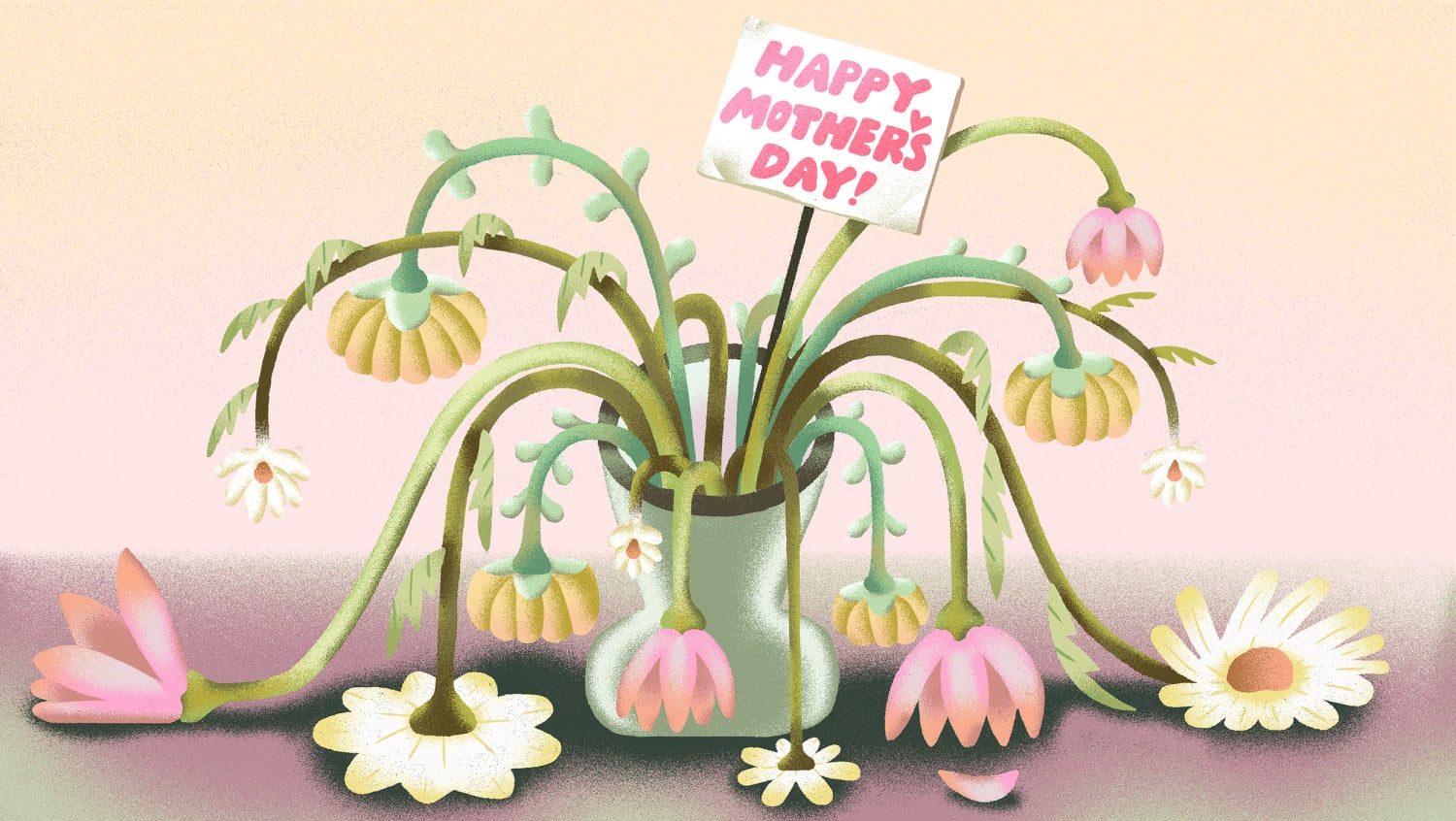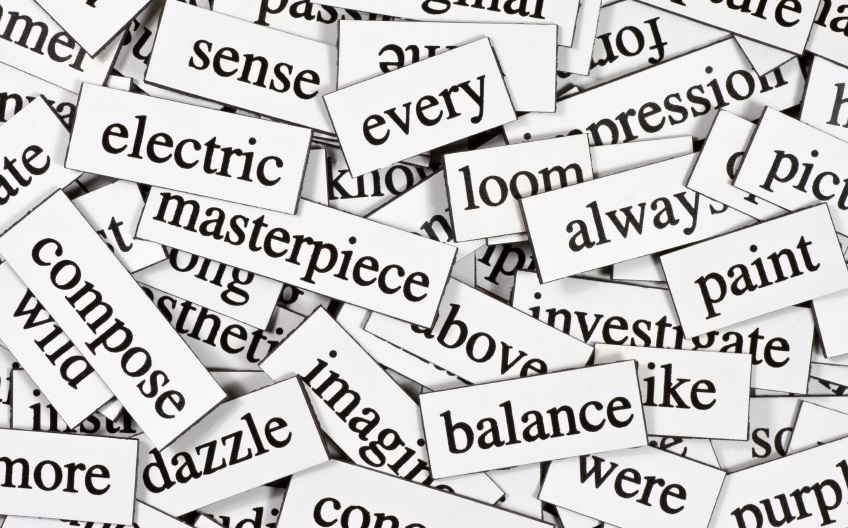In the fanciest words, the most unusual descriptions, and the deepest expressions of love, people often rave about their own family members and their own mother, “The most radiant role model, the best friend, the greatest inspiration, and the most unconditional support.”
Continue readingThis Was My April – Again With World News

May is already here and now it’s officially spring. I hope your April was a good one. Mine – our – April was full of mixed emotions, just like the weather, with ups and downs.
Continue readingWordless Wednesday

Ohio – The Perfect Dog Will Go Into a Shelter

Look at him! Glancing at his human with loyalty in his eyes. They don’t know each other for too long, they just met. Mark took ownership of the dog three weeks ago when a young girl who had the dog before needed to rehome him. That’s where Drama’s story begins. How it will end? I don’t know but I am trying my best to change his future.
Continue readingI Vote Because I Count(ed)

I am an American by choice. I am an Austrian by birth. I have given the privilege to live -and have lived- in countries that give people (still) the right to vote and I am grateful.
Continue readingIt’s A Tough Dog Life

…
They are like two peas in a pod. Siblings, not by blood or breed, but by fortune. We, the humans living with them under the same roof are actually the fortunate ones. Our adopted fury babies ended up in the right house and we are grateful.
Continue readingWordless Wednesday

A Universal Nomad

Where am I?
Do I even exist?
What role do I play in the universe?
For most of my life, I ran away from these questions.
I Think Emojis Make Me Stupid
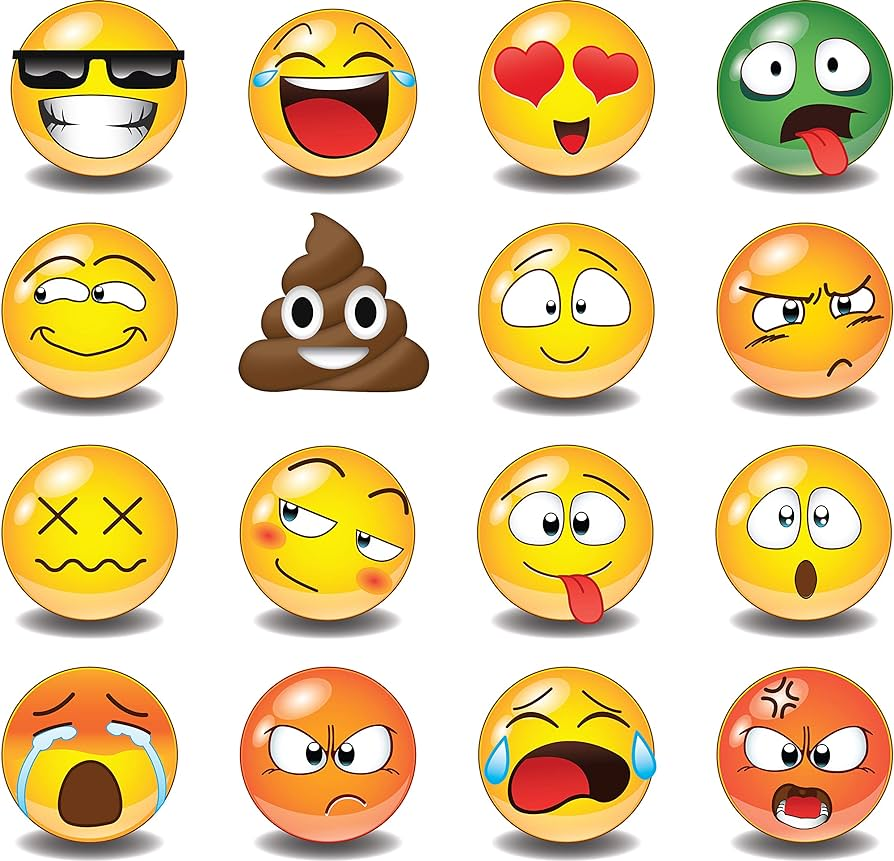
…
Emojis kill brains. Emojis make you look stupid. And me too. All of us. I think emojis make us all kind of silly.
Continue readingIs there anything in a human life that is not a risk?

How big do the consequences have to be to speak of risk? Is it a matter of life and death or just my material security? Is it about the possibility of landing on my behind? Is something risky if it’s just stupid?
Continue readingWordless Wednesday

When Exactly Is Later?

The day just started and now it’s 6 pm
The month is almost over, it happened so quickly
It’s only spring; a new year is just around the corner
Thirty, forty, fifty, sixty years go by too fast
The Old Man In Spring

…
Oh back in my day when I was a youngster
Spring was lovelier than it is today
And that the lovely girls back then were lovelier
Is the only thing that cheers us old men on their way.
It’s Sad When A Friendship Ends

Sometimes it breaks my heart a little to delete numbers because there is a human being behind them.
Continue readingI Had Become a Thief

…
EVERYTHING, even the dumbest of the dumb decisions I made (and there were many) helped me grow because there is no such thing as failure when you continue trying.
Continue readingWordless Wednesday

Vienna -The Cemetery of the Nameless

The Cemetery of the Nameless is not easy to find. Only a few signs along the way point to this place only thirty minutes from downtown Vienna, the Capital of Austria.
Continue readingMonthly Review – My March 2024 With World News

…
My March was eventful. It gave me a few surprises, many laughs, a couple of wonderful movie nights, and a few tears. There was success and confusion. I made a mistake that should have never happened and my pride got a damper. On the other hand – because there is always a silver lining – I am proud of how I reacted.
Continue readingWordless Wednesday

To The Sun

…
More beautiful than the impressive moon and its noble light,
More beautiful than the stars, the illustrious medallions of the night,
Much more beautiful than the fiery entry of a comet
And having a more beautiful mission than all the other stars
Since every day your life and mine depend on it, is the sun.
Happiness Curriculum

…
Imagine children from childcare through 8th grade developing the skills to cultivate greater happiness in life. What a wonderful idea to introduce happiness, to accept that one can adapt and change the mindset to BE HAPPIER.
Continue readingWordless Wednesday

Easter is…

…
“Easter is…
Skipping through meadows,
Joining in a birdsong,
Eying an early sunrise,
Unbolting windows and doors,
Cuddling newborns,
Hoping, believing,
Smelling yellow daffodils,
Reviving spent life,
Inhaling fresh air,
Sprinkling seeds along furrows,
Tracking in the mud.
Easter is the soul’s first taste of spring.”
― Richelle E. Goodrich,
Am I on the right side of history?

…
Something happened last week, that made me rethink and reevaluate my beliefs (?) or perhaps as someone who claims to be agnostic, I should not use the word BELIEVE, but instead call it opinion.
Continue readingWhat you can learn from weird teachers

…
From today’s point of view, the teacher of my school days who taught me a lot was a pretty weird guy. He was the only male teacher in a boarding school in Bavaria, a school run by Catholic nuns.
Continue readingWordless Wednesday

What do I know about climate change? What do you know?

Many are concerned about climate change, and others doubt it will occur. Some are still undecided. Will it really be that bad? Is there anything we can do about it? And if so, what? I thought I knew a lot, but turns out I hardly know anything. That’s not so easy to admit. How about you? Do you think you know more? Then here you go…
Continue readingWordless Wednesday

Stuffed in a Drawer
“Nagi and Dozer” An Australian Cooking Duo

…
Well, the headline is not true. “Dozer”, the beautiful energetic golden retriever doesn’t cook, he leaves it up to his human “Nagi” but he is her willing food tester.
Continue readingAbout Sausage Fingers and Soccer Calves

I didn’t know there was something wrong with me until second grade. A girl in my class looked at my hands and told me I had sausage fingers.
Continue readingHow Putin Will Win Today -Or How a Dictator Manipulated an Election

Yulia received her special bonus a few days ago. “For the election,” the supervisors stated bluntly. Yulia, in her early 40s, works in the administration of a state energy company. The bonus is for the so-called “presidential elections” that are being held this weekend from Friday to Sunday. It’s the first time polls in Russia will be open for three days.
Yulia was assigned to vote for Vladimir Putin together with her colleagues on Friday in their office using the government portal. Afterward, she was asked to send a screenshot to her bosses.
Previous elections have also seen pressure exerted on employees of state-owned companies, says Yulia, but it has been particularly bad this time, she says.
Vladimir Putin, in other words, will win this vote too –by a landslide, Yulia from Moscow is certain of that. The state opinion research institute VCIOM has predicted that Putin will receive 82 percent of the votes in the three-day election. The Kremlin-aligned institute is predicting voter turnout of 71 percent. It is unclear whether these figures have any connection to reality whatsoever.
Yet the numbers are important for Vladimir Putin. The Kremlin is said to have demanded at least 70 percent voter turnout from the election organizers, no matter how they get there.
Putin, despite having turned his country into a dictatorship, wants to maintain at least the appearance of legitimacy internationally and that translates to massive pressure on civil servants and employees of state companies, universities, schools and kindergartens.

Putin’s Loyal Election Organizer
The electoral authorities are relying on pathos and patriotism to mobilize people. “Together, we are one – let’s vote for Russia,” reads the election posters plastered across Moscow and other Russian cities. They can be found at bus stops, on streets, and in house entrances. Next to it on a white background is a large Latin “V,” for victory – and also as a symbol of support for the “special operation” in Ukraine, Russia’s war.

The face of Putin’s election farce is Ella Pamfilova, the 70-year-old head of the Central Election Commission. Veteran Russia observers will still recall that Pamfilova was once an upright politician and defender of human rights, a person who stood up with a backbone and decency for protesters, non-governmental organizations and against the expansion of the power of the secret services. Today, though, Pamfilova is an enthusiastic supporter of the war –and of Putin. The former Russian human rights commissioner took over as head of the electoral authority in 2016 and is partly responsible for many of the setbacks in recent years.
Today, Pamfilova doesn’t shy away from the absurd claim that, unlike elections in Western countries, those held in Russia are “direct” and “democratic.” For this “election,” she has at her disposal a budget of at least 33.2 billion rubles, the equivalent of around 331 million euros, almost twice as much as in the last presidential election. In addition, there are further funds from the electoral authorities in the regions. The money is used to make the electoral machinery even more unclear.
The Election Manipulation Toolbox
The Kremlin has greatly expanded its toolbox for election manipulation in recent years, with two-thirds of the articles in the law on presidential elections having been changed. Here are just a few of the most important points:
- According to the Russian constitution, a president may not rule for more than two terms. But Putin had the constitution amended in 2020 to annul his previous terms of office. This means he can theoretically be elected to the presidency two more times for six-year terms and remain in the Kremlin until 2036.
- As part of the constitutional amendment, the rules for the admission of candidates to the presidential election were also tightened. They must now have lived permanently in Russia for 25 years instead of 10, and must not hold or have held a second citizenship or the right to residency in another country. There is an exception for Ukrainians from the occupied territories.
- In 2020, Moscow moved to stretch the election from one to three days.
- Voters in Moscow and the country’s 28 regions have the opportunity to vote online this time, more than ever before. However, this form of voting is even less transparent than traditional ballot box votes.
- The possibilities for direct election observation –such as access to video recordings from polling stations, which had existed in the past –were severely restricted.
“What we are looking at here is the most non-transparent election in Russia’s history,” Stanislav Andreychuk of the independent election observer movement Golos told DER SPIEGEL in an interview. Golos is an important and well-known voice of democracy in Russia.
Fewer Rivals than Ever Before
The hurdles for independent rival candidates were already high in previous presidential elections. As a rule, the Kremlin only admitted candidates who weren’t really an alternative and posed no threat to the incumbent. Opposition activist Alexei Navalny, who recently died in a prison camp under murky circumstances, was excluded in 2018 on the grounds that he was a convicted felon. The Election Commission cited an absurd and politically motivated trial in which Navalny had been sentenced to a suspended sentence. In the case of the antiwar candidate Boris Nadezhdin, formal errors in the signature lists of his supporters served as a pretext for exclusion this year.
Election Commission head Pamfilova has never screened candidates as rigorously as this election. Besides Putin, only three puppet candidates will be on the ballot: Nikolai Kharitinov, 75, of the Communist Party, Vladislav Davankov, 40, of the New People party and Leonid Slutzky, 56, with the so-called Liberal Democratic Party, which is in reality illiberal and nationalist. None of the three is popular with the Russian public, and it would be hard to be any less charismatic than these men. “None of these candidates even pretended to campaign,” says Andreychuk.
Russian “Presidential Elections” in Ukraine

Voting takes place under the observation of an armed Russian soldier
In the Russian-occupied areas of Ukraine, voting got started before the official election days. With martial law in force in the Donetsk, Luhansk, Zaporizhzhia and Kherson regions, the elections are often held in the form of house-to-house visits. Civilian election workers accompanied by armed personnel in uniform visit the residents to boost turnout. In the Luhansk region alone, the regime is said to have employed 2,600 helpers.
Election Observers Largely Shut Out
The Russian regime is once again trying to adorn itself with international “election observers,” with around 200 foreigners reportedly taking part in this vote, including members of the far-right populist Alternative for Germany (AfD) party. But their work bears little resemblance to real election monitoring. They are merely there to provide the state media with friendly commentary.
There will be no official international observer mission from the Organization for Security and Co-Operation in Europe (OSCE) this year. The OSCE stopped sending observers to the Duma elections three years ago because the Russian state had imposed overly restrictive conditions.
An Attempt at Protest
The liberal opposition, whose leading figures are now either in exile or in prison, would like to counter Putin’s “election” show with at least a symbolic gesture. Kremlin critics are calling for people to go to the polling stations at exactly 12 p.m. on Sunday, the third and final day of voting. Navalny was also part of this campaign shortly before his death. Opposition members want to show that there’s another, critical, Russia.

Mourners at Alexei Nalvany’s grave in Moscow.
“It’s the only thing we can do,” says Ilya, 24, who is speaking by phone. He still holds out hope for a future for Russia without Putin. For him, it is important to know that there are other like-minded people out there. “I just want to believe that not everyone here supports this ideology.” He says he will likely invalidate his ballot paper by putting several crosses on it, “That way, I’m voting against everyone.” Ilya says he’s not afraid –it’s his right to go to the polling station. The Moscow public prosecutor’s office has already threatened those who attempt to take part in the announced 12 p.m. election campaign with up to five years in prison.
Yulia, who lives in Moscow, and her colleagues are hoping that they can fool their bosses into believing that the authorities’ internet portal, which she is supposed to vote on, isn’t working properly, which actually does happen from time to time. They would report the alleged error to their bosses –and go to a polling station after work and throw an invalidated ballot paper into the ballot box.
Putin will win -again and to all of us who are watching from afar, there is a lesson to be learned.
Update: The lines in front of the polling stations were long at 12 pm. It gives hope for the future. Perhaps one day Russia will be a true democracy.
Wordless Wednesday

This Was My February

This is my second monthly review in 2024 and I am late again, which is surprising because I am never late. In real life I am always early, I even trick my husband into accidental punctuality. (Long story).
Continue readingThe Beast Arose

…
This is the animal that never was.
Not knowing that they loved it anyway;
its bearing, its stride, its high, clear whinny,
right down to the still light of its gaze.
It’s Like A Tattoo On My Forehead

…
Oh yes, there is that one question I hate to be asked, because I hear it all the time, almost on a daily base, for nearly 40 years.
Where are you from?
Continue readingWordless Wednesday

A Man Walks By With A Stick Of Bread On His Shoulder
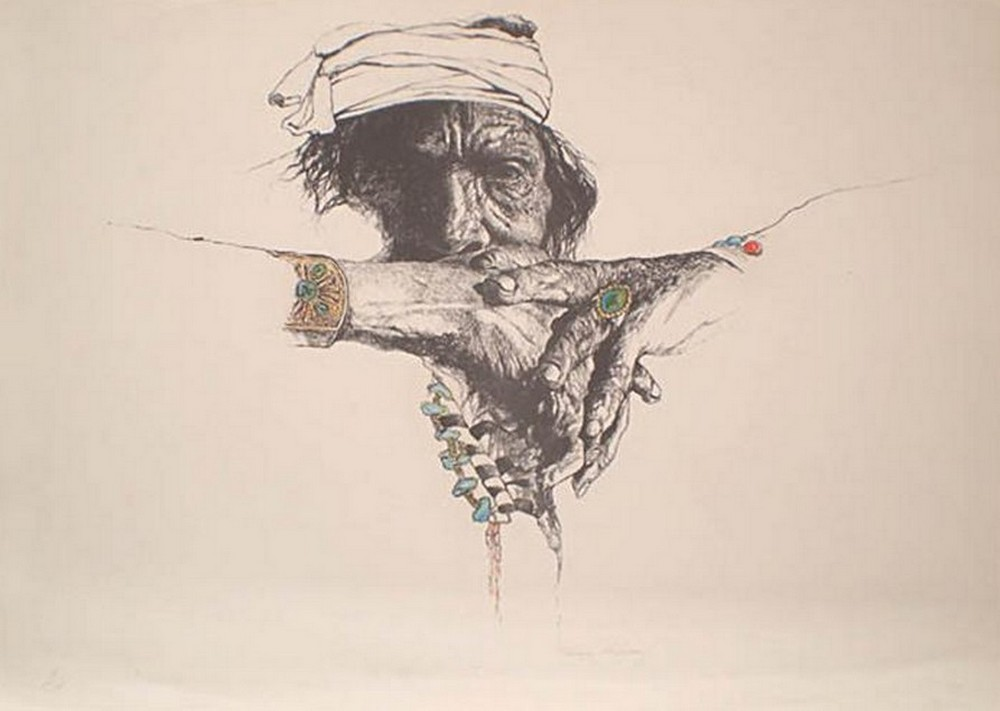
The suffering of people, how hard it is to watch. The pictures of Gaza fill my eyes with tears and make my heart heavy. The news from Ukraine leaves me almost hopeless. In a few hours, I will open the door to our filled fridge, which is right now overflowing with vegetables and fruits and I will start preparing dinner.
Continue readingLosing it All

…
In October 2009, during a time when the American economy took a nosedive and people
were being laid off by thousands and tens of thousands every day, we lost everything, our home, jobs, friends, and ultimately the city we had lived in for so many years.
Wordless Wednesday

Enjoy The Perky Boops!

Dear young one,
It’s me, your older – much older – self and that’s good news because as of today, you will at least live to be 60. So stay in shape, you have a long road ahead of you.
Continue readingWhat Is A Good Life?
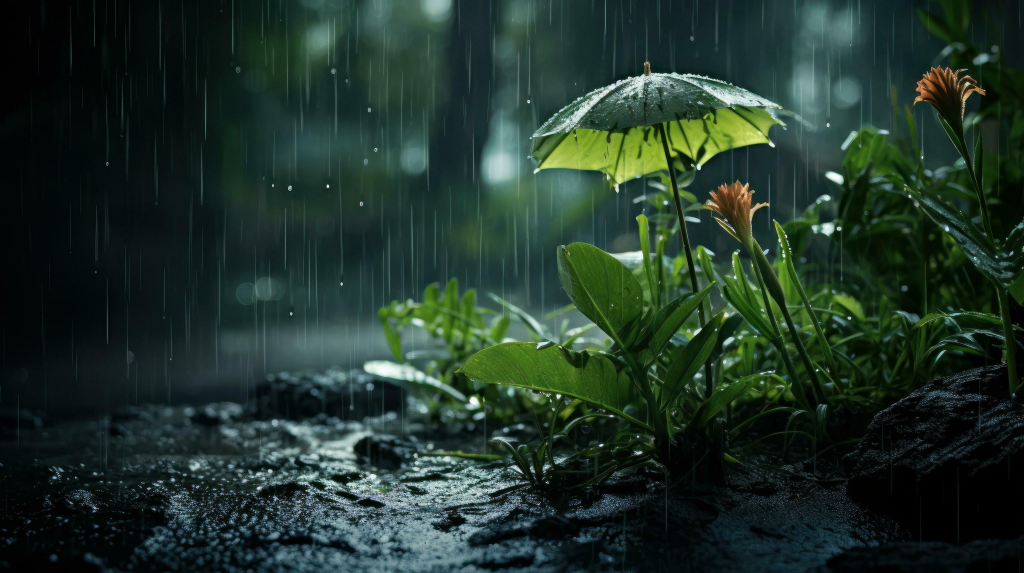
…
Do you remember how you imagined your life as a child or teenager? Have our expectations been fulfilled? Are we living a supposedly good life?
Am I living a good Life? Or is your life better than mine?
Continue readingNot Just Another Hero

Alexei Navalny was a politician in a country without politics and lived as if there were no death. Now, according to authorities, he has died in the penal colony. Did the Kremlin win? Did Putin win? Not if you think like Navalny.
Continue readingNo More Homelessness In Finland

For years, the number of homeless people has been rising in Europe and in America but not in Finland. The country’s Housing First Program aims to eliminate the problem by 2027. But how?
Continue readingOf True Love and Old Age

The other night I watched him doze off in his chair. My husband looked tired – work had been crazy lately, and a lot had been going on in our private lives as well. My friend, my partner, my lover is getting old right beside me.
Continue readingWordless Wednesday

And Then It Hit Me…

I spent the summer of 1991 in Yugoslavia, a country that no longer exists. As always I got paid to travel and had all extra expenses reimbursed, which is fair enough because you still pay all your monthly bills at home.
Continue readingThis was my January 2024

This is my first monthly review in 2024, and I am already running late. It seems I have been falling behind with everything and I am still playing catch-up. Too much has been going on. On January 7th, my doctor declared me ‘healthy’ again. After weeks of battling a cold that had lingered for weeks, I could finally stop the antibiotics and I restarted my low-dose chemo drug.
Continue readingWordless Wednesday


